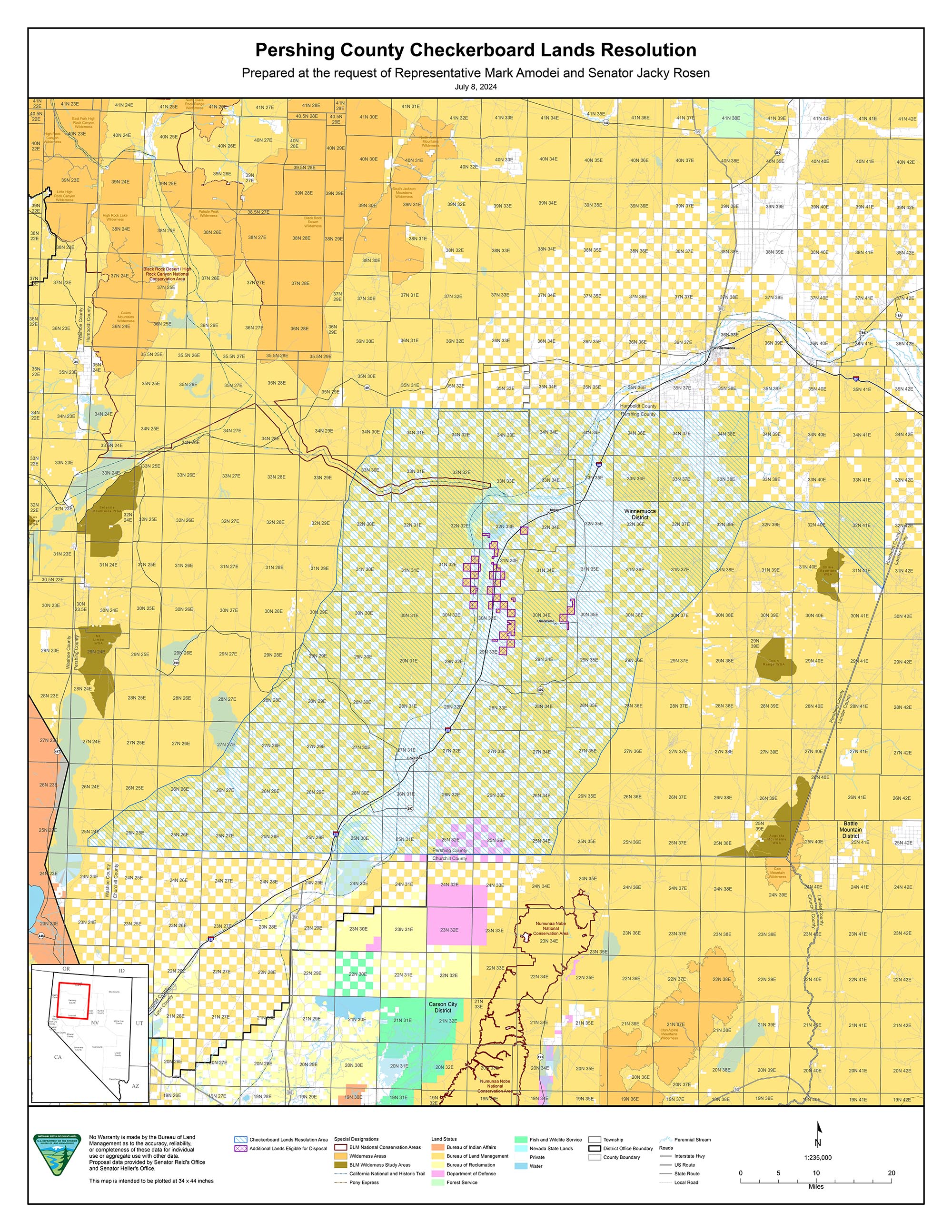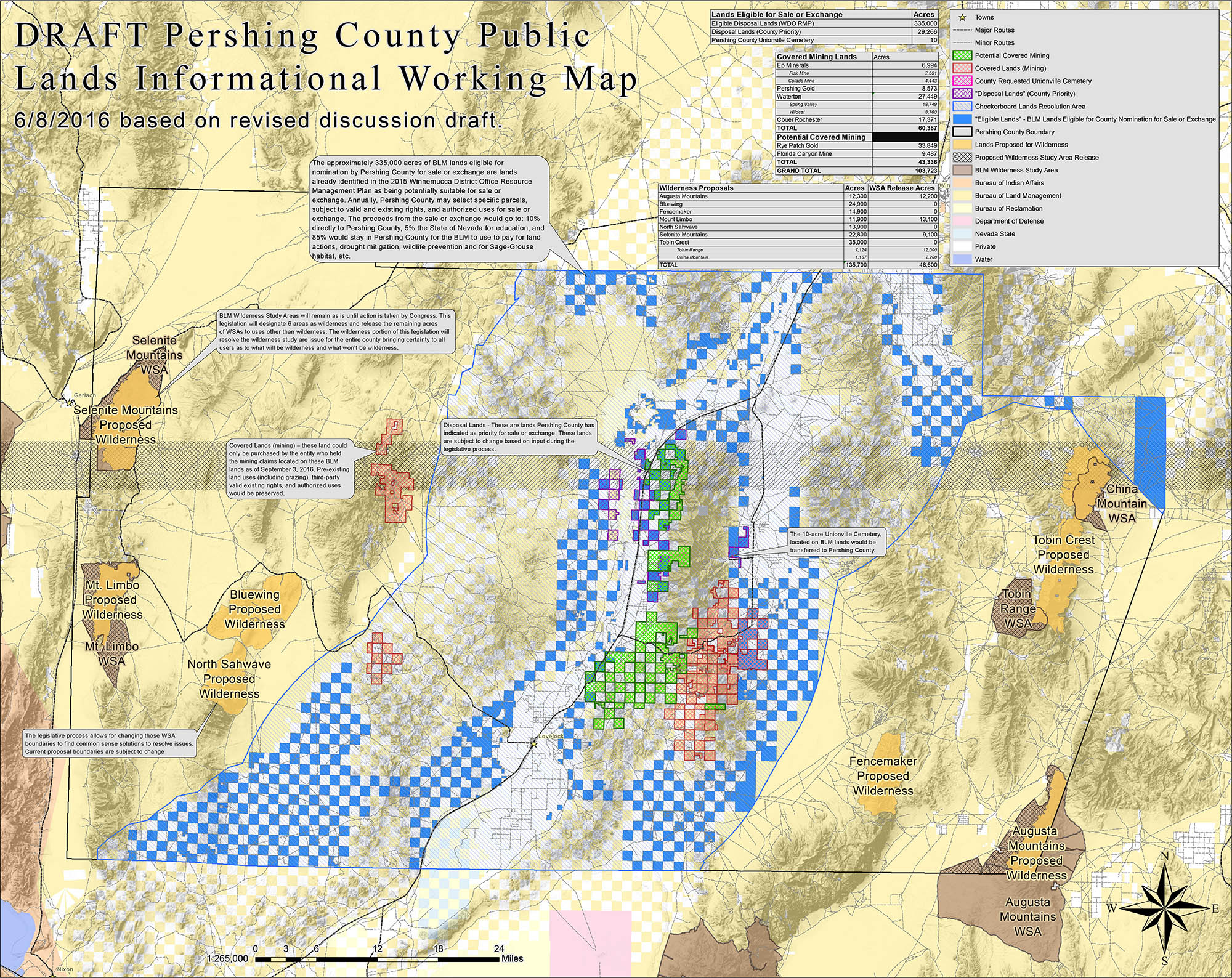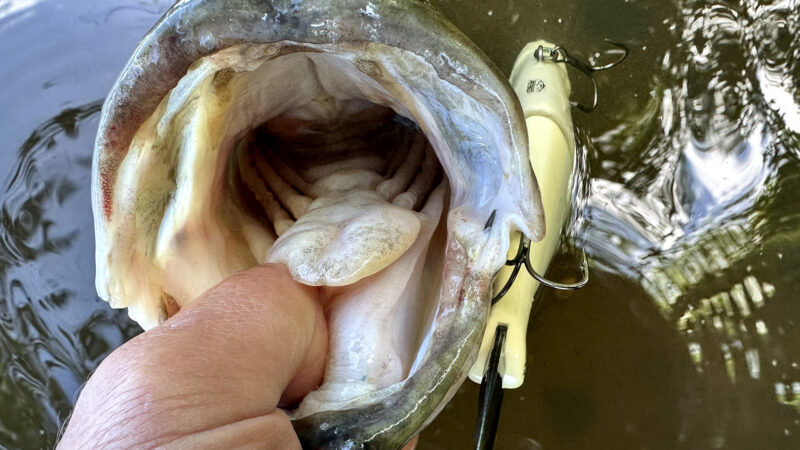Here’s Why the Federal Land Sale Bill Is a Bad Idea, and Horrible Legislation
America’s hunters and anglers are raising hell this week after a proposal to sell up to a half-million acres of BLM land in Nevada and Utah made it through the House Committee on Natural Resources.
They’re right to raise hell. The wealth that ordinary Americans hold in our public lands and waters is one of our country’s great equalizers, putting blue-collar wage workers on the same footing — literally — with CEOs and tech bros. For hunters and anglers, these public lands and waters are our backyard, our grocery store, our library, our gym, our church, and our classroom.
The most obvious reason the proposal to sell BLM land outside St. George, Utah, and in Nevada’s urban-growth areas is getting heat because it creates a precedent to sell other public parcels — maybe every public parcel — without a review process. But that’s only half the story. The real story is how this odious amendment to a congressional budget proposal was slipped in at the last minute, with no debate, no clear budgetary purpose, no public process, and apparently against the wishes of people who live among the public lands that will be sold.
That sort of political malpractice should get the attention of every Western hunter and angler, and the committee’s proceedings should be required listening for conservatives who demand fiscal responsibility, relish vigorous debate, and who oppose activist government.
A Sham Hearing
The idea that public land might be auctioned off to balance the federal budget had been circulated for weeks before the May 6 House Natural Resources Committee budget mark-up session. But conservationists were relieved when a draft of the budget priorities didn’t include a provision for selling federal properties.
There was plenty to dislike in the budget reconciliation plan, including mandatory energy leases on federal land, expansion of coal mining in the West, green-lighting a controversial mine near the Boundary Waters Canoe Area Wilderness and a habitat-fracturing road in Alaska, and removing environmental protections and the ability to protest wrong-headed projects.
But at least there were no federal land sales in the blueprint that is estimated to either save or raise $18.5 billion, well above the committee’s target of $1 billion in savings.
I’ll give the committee and its chairman, Arkansas Republican Bruce Westerman, this: They covered a lot of ground on May 6. For hours they waded through almost 120 amendments to the budget proposal. Most were from the minority Democrats, calling for revision or withdrawal of some of the most contentious provisions of the budget blueprint. For about 11 hours, Westerman entertained one amendment after another, though all failed on party-line votes. The day would have gone even longer, but no Republican rose to defend the blueprint or to refute Democrats’ claims of self-dealing, collusion, violations of congressional order, or harms to the environment, the economy, and to communities around the country.
I mean no Republican spoke up. Not one. Not even when Colorado Democrat Joe Neguse pleaded for some insight about whether a provision violated House rules that prohibit policy matters in budget bills (That question matters; it might be enough to get the entire committee blueprint rejected by the Senate parliamentarian).
I mention the Republican’s stonewalling, apparently in obedience to a gag order from GOP leadership, because for 11 hours, most Republicans were not even present for the mark-up, appearing only for periodic votes. The sham hearing reminded me of a politburo proceeding, a realization that would be funny if the content of the hearing wasn’t so dangerous to our hunting, angling, and public-access traditions.
The Dark of Night
The meeting extended well into the night, until Nevada Republican Mark Amodei, along with co-sponsor Celeste Maloy (R-Utah), dropped a 33-page amendment that calls for selling about 11,000 acres of BLM land around St. George, Utah, another 200,000 acres around Las Vegas and other Nevada cities, and would force the “sale or exchange” of another 356,000 acres of landlocked BLM land in rural Pershing County, Nevada You can see how it all went down here, (starting at about time stamp 2:59:30 to 3:32:03).
This is the trigger that has sparked outrage since the House committee approved the amendment, introduced at nearly midnight, on a 26-17 mainly party-line vote. Only California Democrat Adam Gray voted for the package, though he has indicated he won’t support it on the House floor.
“This is just some truly odious sausage at 11:20 p.m. at the end of a long markup,” observed Rep. Jared Huffman (D-Calif.), the ranking Democrat on the committee. “Any member of Congress that votes for this is just surrendering any semblance of good process.”
I’ll put a point on Huffman’s comments. No member of the committee, not even Republicans, saw a map of the land sales, which are not suggested or recommended. The amendment, by using the word “shall,” requires the federal government to execute the land sales and trades. That should get the attention of any Westerner who dislikes the idea of the government forcing its way into local real estate deals.
Despite being asked repeatedly by his colleagues, Amodei could not articulate why his amendment was needed, or who had requested it.
Furthermore, the amendment carries no fiscal note, since the land will be sold for fair-market value, budget drafters have no idea of the impact to the federal budget. And after committee Democrats pushed the point, Amodei acknowledged that he doesn’t represent most of the Nevada committees affected by his amendment and confirmed that local officials in those regions were opposed to it. That should get the attention of home-staters who oppose the notion of an activist federal government.
While the committee didn’t have any maps on which to base their vote, the parcels in Utah and many of those in Nevada are identified here. And the Pershing County land exchange map is shared below.

Completely Outside the Norm
As the National Wildlife Federation has observed, the budget draft bypasses an established process of disposing of federal land that includes public input, coordination with local governments, and a transparent review process. Congress is supposed to be notified for sales exceeding 2,500 acres, and in those reviews, a formal hearing is scheduled so that proponents, opponents, and informational witnesses can provide the basis — and sworn testimony — for congressional consideration.
None of that happens with Amodei’s amendment.
“Rather than requiring careful analysis and local input, the amendment mandates that these lands be sold, exchanged, or transferred on an expedited timeline, essentially cutting corners on the planning, environmental review, and public participation that would normally happen under the Federal Land Policy and Management Act” of 1976, the NWF notes in a blog post.
Both the local participation and environmental review should be especially critical in the Pershing County land swap. According to some accounts, proponents of the swap intend to develop metal mines on the consolidated lands.
“Solidus Resources, LLC, Coeur Mining, Pershing Gold, and EP Minerals will have the ability to purchase the federal lands where their mining claims are located,” according to Pershing County’s local government. It should be noted that federal-land sale and consolidation has long had support from the county government and nearby Winnemucca.

That makes sense, but what doesn’t make sense is that, according to the 1872 Mining Law, mineral deposits from federal lands can be extracted without paying any royalties to the U.S. Treasury. Every time the royalty provision has been revisited, it has been voted down by Western Republicans.
The consequence of the Pershing County land deal may be that once-federal lands will be sold “at fair market value” to mining companies, with minimal contributions to the federal Treasury, and then developed with no receipts going to balance the federal budget. That should raise a red flag for every fiscal hawk in Congress. To put a point on it, this land deal does not address our federal budget deficit.
A Dangerous Precedent
The problem with short-cutting the established process is that, if the budget provision passes the full House and then the Senate, and these land sales proceed, similar sales could be done again and again.
And this time, budget-drafters will likely have real revenue numbers at their disposal, from receipts generated by the sale of high-value Utah and Nevada urban-interface BLM sales.
Some projections are that BLM in Clark County, Nevada, could sell for as much as $120,000 per acre to developers who, given the high cost of the land, will not be interested in building affordable housing. That revenue will look mighty good to fiscal conservatives who would use the sale of our public estate to get out of a budgetary jam.
The problem with that thinking, of course, is that it’s like a landlord selling a house to pay a debt. It’s an immediate fix, but gone is the monthly rental payment, the appreciation of the asset over time, and the enjoyment of the house in the future.
Also missing from the calculation is the recreational value that almost all public lands hold. For those of us in small Western communities, it’s the ability to swing out to a section of BLM land to sight-in a deer rifle before the season, or the hole in a river where we taught our kids to fish, or the trail where we experienced the frights and joys of solitude. Or the handsome ridge where we want our ashes to be spread.
If we don’t fight this particular time, and stop this flawed bill and hackneyed process, how can we fight when our own backyards, churches, stores, and playgrounds are on the auction block?
There’s still a chance to turn this around on the demerits of this particular bill. It’s big government at its worst, won’t solve our budget mess, and is being jammed through by drones who wouldn’t know a dry fly from a streamer. And most importantly, it’s neither in the national interest or your community’s interest.
Tell your representative to vote against the House Natural Resources Committee reconciliation budget mark-up. Tell them it doesn’t deserve to live to see the Senate. And it certainly doesn’t deserve President Trump’s signature.
The post Here’s Why the Federal Land Sale Bill Is a Bad Idea, and Horrible Legislation appeared first on Outdoor Life.
Source: https://www.outdoorlife.com/conservation/public-land-sale-bill-is-bad-legislation/



